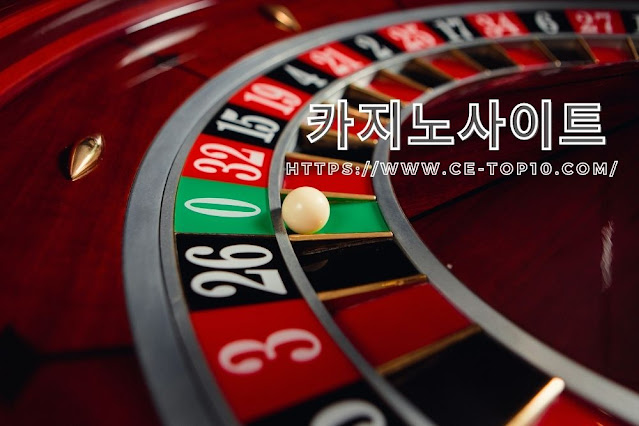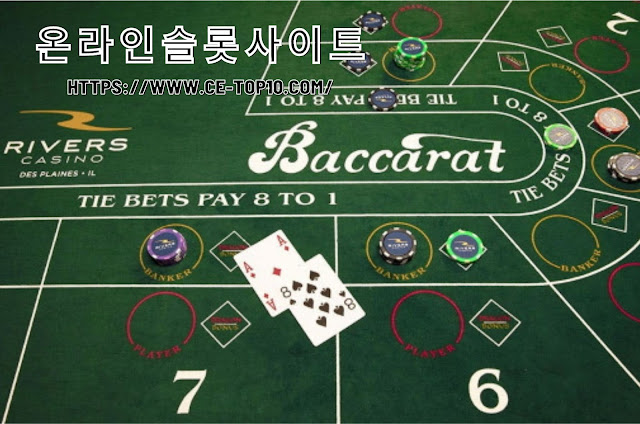The Fundamental Theorem of Poker
The Fundamental Theorem of Poker
My companion Larry called me a few days ago to ask me an inquiries about changing from online poker to live poker. He knows I'm a poker 바카라사이트 player, and he likewise realizes that I expound on poker broadly for work. The primary thing I asked him was assuming he knew about the Fundamental Theorem of Poker.
David Sklansky instituted the adage "The Fundamental Theorem of Poker." The thought was to summarize the idea of the game obviously and rapidly.
This is the way Sklansky communicated the Theorem:
Each time you play a hand uniquely in contrast to the manner in which you would have played it on the off chance that you could see every one of your rivals' cards, they gain; and each time you play your hand the same way you would have played it assuming you could see every one of their cards, they lose.
Alternately, every time adversaries play their hands uniquely in contrast to the manner in which they would have on the off chance that they could see every one of your cards, you gain; and each time they play their hands the same way they would have played if they would see every one of your cards, you lose.
I recommended to Larry that he completely concentrate on Sklansky's book The Theory of Poker. I recommend that assuming you're significant with regards to poker, you ought to do exactly the same thing.
Until you can get your duplicate of that book and begin understanding it, here are my very own portion perceptions regarding The Fundamental Theorem of Poker.
The Fundamental Theorem of Poker Is Essentially Mathematical in Nature
Despite the fact that the Theorem is plainly composed without numbers, the thought behind it depends on rationale, math, and likelihood. It additionally explains the idea of the game - poker is basically about settling on certain assumption betting choices in circumstances where you have inadequate data.
This, all things considered, is the contrast among poker and rounds of unadulterated expertise like chess. In a game like chess, you have a ton of factors, however you know it all there is to know. The pieces can move in explicit examples, and they're found any place they're situated on the board.
It's feasible for a second rate poker player to win a hand against a specialist. It's even feasible for a second rate poker player to have winning meetings against specialists. That is a direct result of the irregular idea of the game. You can settle on inaccurate choices in poker regardless win.
This isn't true in a game like chess.
At the point when you settle on a choice in poker, you ought to ponder the numerical assumption for that choice. The choice with the biggest expected esteem is dependably the right choice in light of the fact that the objective of poker is to win cash.
On the off chance that you were playing with every one of your adversaries' cards face-up, you'd know precisely which choice would have the most noteworthy anticipated return. Regardless of whether you know what to do naturally, you'd have the option to ultimately sort it out for certain minor computations.
Here is one more method for checking it out:
Assume your adversary is playing with his cards face-up, yet you're playing with your cards face-down.
Do you perceive how you'd enjoy a numerical upper hand over your adversary?
An Example of the Fundamental Theorem of Poker in real life
Suppose my amigo Larry is playing Texas holdem. He gets a couple of sevens preflop. He calls the large visually impaired, and every other person folds. The large visually impaired checks.
On the lemon, a pro, a lord, and a jack are appearing.
Larry needs to choose what to do straightaway. He ought to presumably overlay as a result of how negative the failure is to him. The enormous visually impaired is probably going to have any of those three cards - an ace, ruler, or jack - and that implies that the large visually impaired has Larry beat.
Additionally, I didn't specify this, however two of the failure cards were of a similar suit, so the enormous visually impaired could likewise have a flush draw. The likelihood that the large visually impaired could have an attract to a straight shouldn't be disregarded, by the same token. The large visually impaired could even have a sovereign and a 10, and that implies he could as of now have hit a straight.
Regardless of whether a seven appears on the turn or the waterway, Larry could lose this hand - his three of a sort probably won't be adequate to beat the likely flush or straight. Also there are just two sevens remaining in the deck, and that implies he's significantly less inclined to hit his hand than the huge visually impaired is.
Be that as it may, what might be said about this?
Assume the huge visually impaired is playing with his cards face-up, and he has a fit six and seven. Larry presently realizes that the large visually impaired has a flush draw. The right choice for the huge visually impaired now is to raise.
Assuming that Larry folds in the present circumstance, he's committing an error since he's playing his hand uniquely in contrast to he would on the off chance that he knew what the large visually impaired was holding.
Your objective in poker is to keep away from botches, yet your objective is additionally to urge your rivals to commit errors.
This is likewise an exemplary illustration of a semi-feign. The huge visually impaired successes in the present circumstance assuming that Larry folds, yet he additionally wins assuming that he hits one of his nine outs.
Anyway, Should I Always Play My Hand Deceptively?
A novice poker player could learn about The Fundamental Theorem of Poker and accept that he ought to continuously play his hand uniquely in contrast to what its solidarity could warrant.
He could believe that he should check his pair of pros in the expectations that one of his rivals will be or raise against him.
He could believe that he should wager and raise each time he gets 27 offsuit.
However, this isn't the right utilization of the Fundamental Theorem of Poker.
For a certain something, the Fundamental Theorem of Poker applies straightforwardly to heads-up poker, however in multi-way pots, its utility abatements on account of what happens when different players simply decide.
For instance, assuming that you have a solid hand, yet a few different players have drawing hands, you can be a dark horse since you have such countless adversaries. This is one reason you should wager and lift with solid preflop hands - you need to thin the field to make winning more probable and to improve on your decision making in later adjusts of the game.
Then again, assuming you ARE heads-up with an adversary and have a feeble hand, it CAN appear to be legit to wager and raise with it. Indeed, it's fundamental to try not to be unsurprising. Face it. In the event that you generally play your hands entirely as indicated by the hands' solidarity, you should play with your cards face-up in any case.
Having a thought of your adversaries' inclinations assist with these choices, as well. I've played with a wide range of poker players, and there are the people who view themselves as "sheriffs." Even with the most vulnerable of hands, they'll call you down to the waterway just to ensure you're not placing one over on them.
Then again, assuming you realize they'll overlay except if they're holding premium 카지노 cards, on the off chance that you can get heads-up with them and have position on them, it's a good idea to feign and semi-feign as frequently as could be expected.
One more Way to Explain This Concept
Assume you're playing Texas holdem for genuine cash, and you can see every one of your rivals' opening cards.
In any case, they can't see yours.
Since you realize how solid or frail your adversaries' cards are, you can choose with a ton of accuracy whether to wager, call, check, overlay, or raise.
That summarizes basically how to play productive poker.





Comments
Post a Comment